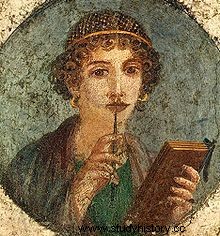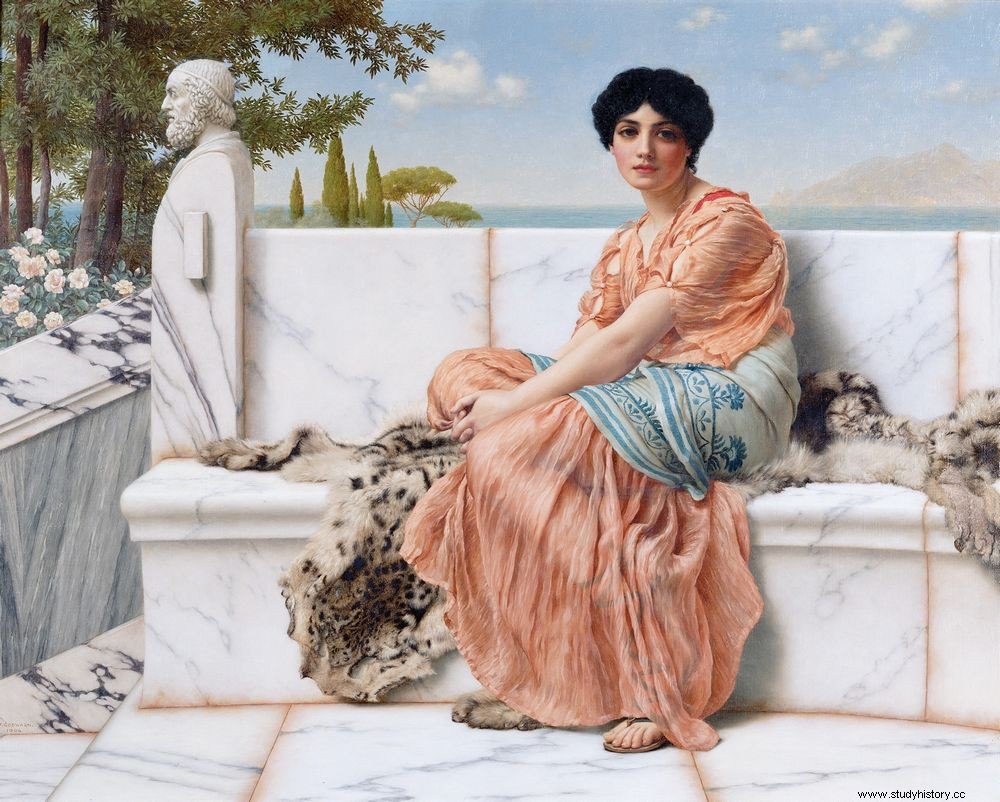Sappho is an ancient Greek poetess who lived in the 7th and 6th centuries BC in Mytilene, on the island of Lesbos.
Poetess, singer and dancer
 We have little information about Sapphô; the sources that have come to them are late or are comic works, and most of his works have been lost.
We have little information about Sapphô; the sources that have come to them are late or are comic works, and most of his works have been lost.
Sapphô was born around 630 BC in Mytilene, on the island of Lesbos. His family, belonging to the aristocracy, may have had origins in Asia Minor. According to Ovid, her father, Scamandrônymos, died when Sapphô was six years old. She has three brothers. Sappho is described by several sources as "small and black". It is not known from a reliable source if she was married.
Sapphô maintains a group of young girls who sing and dance, especially during official ceremonies. The poetess teaches young girls theater, dance, singing and poetry, as equals. They cultivate a certain spirit of independence there vis-à-vis the very restrictive laws and customs of the city.
Exceptional freedom of tone

Homosexual (although the term is anachronistic), Sapphô does not hide in her poetry her love of young girls and her desire for them. On the part of a woman, this freedom of tone is exceptional and her successors will widely criticize her or try to conceal her homosexuality.
Sapphô is known for her lyrical love poetry, but she also wrote political verse. Like the poets of the time, she is also a musician and plays the lyre.
She dedicated her work to the Goddess Aphrodite. Here is the Ode to Aphrodite, translated by Renée Vivien:
"You whose throne is rainbow, immortal Aphrodita, daughter of Zeus, weaver of tricks, I beg you not to tame my soul, O Venerable, by anguish and distress. But come, if ever, and more than once, hearing my voice, you listened to it, and, leaving your father's house, you came, having hitched up your golden chariot. And it was beautiful fast sparrows leading you. Around the dark earth they beat their wings, descended from the sky through the ether. They arrived immediately, and you, O Blessed One, having smiled with your immortal countenance, you asked me what had happened to me, and what favor I implored, and what I desired most in my senseless soul. "What Persuasion do you want to attract to your love? Who treats you unfairly, Psappha? For the one who flees you quickly will pursue you, the one who refuses your gifts will offer them to you, the one who does not love you will love you quickly and even in spite of herself. "Come to me again now, and deliver me from cruel cares, and whatever my heart desires to accomplish, accomplish it, and be Yourself my ally"
